Women's hockey will be in great shape when the Olympic final, for the first time ever, excludes both Canada and the United States. Until then, they'll keep playing instant classics.
Canada withstood the U.S.'s furious third-period charge to win the gold medal in Beijing on Thursday, the country's fifth in seven tries. Marie-Philip Poulin scored twice in the 3-2 victory to prolong an immaculate streak: The Canadian captain has sniped the golden goal in every Olympic title game she's won. Ann-Renee Desbiens stopped 38 American shots, and Canada mobbed her when the buzzer sounded at 1:23 a.m. ET.
Amanda Kessel's power-play goal with 12.5 seconds left almost sparked an epic American comeback, but the U.S. couldn't surmount the three-goal lead that Poulin's line built early. Sarah Nurse opened the scoring and, on a second-period rush, assisted Poulin's dexterous finish from a sharp angle. That was Nurse's 18th point of the tournament, eclipsing Hayley Wickenheiser's Olympic record (17) that Poulin matched on the same play.
This Canadian team scored at will in China. It might be the best that's ever graced Olympic ice, avenging the U.S.'s golden shootout win from 2018 at the end of a chaotic quadrennial.
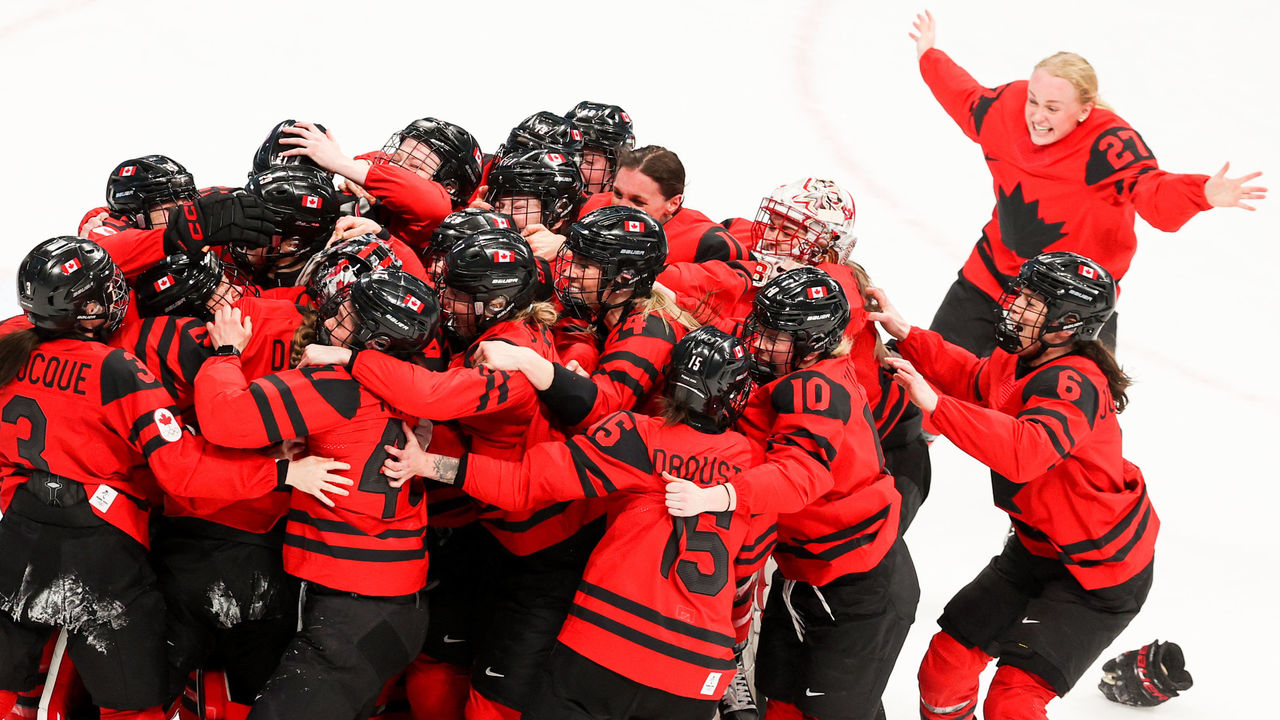
During the four-year cycle that led into Beijing, Canada's women's pro league folded, and members of both national teams left the top U.S. league in response. They formed the traveling Professional Women's Hockey Players Association, which holds weekend showcase tournaments when COVID-19 permits. They want to see a new league created that, most crucially, would pay players a living wage.
As the national teams geared up for Beijing, they kept playing barn burners. Canada beat the U.S. 3-2 in overtime in the 2021 world championship final, and at the end of six Olympic tuneup games this past fall, Canada led by a combined score of 13-11. Desbiens made 51 saves in their first Olympic encounter last week, a 4-2 Canadian win.
That was either squad's only close game until Thursday. Between Group A play and the knockout stage, Canada outshot opponents that weren't the U.S. 284-80 and outscored them 50-6. The Americans outscored non-Canadian teams 26-4. Programs that used to challenge them couldn't keep up.
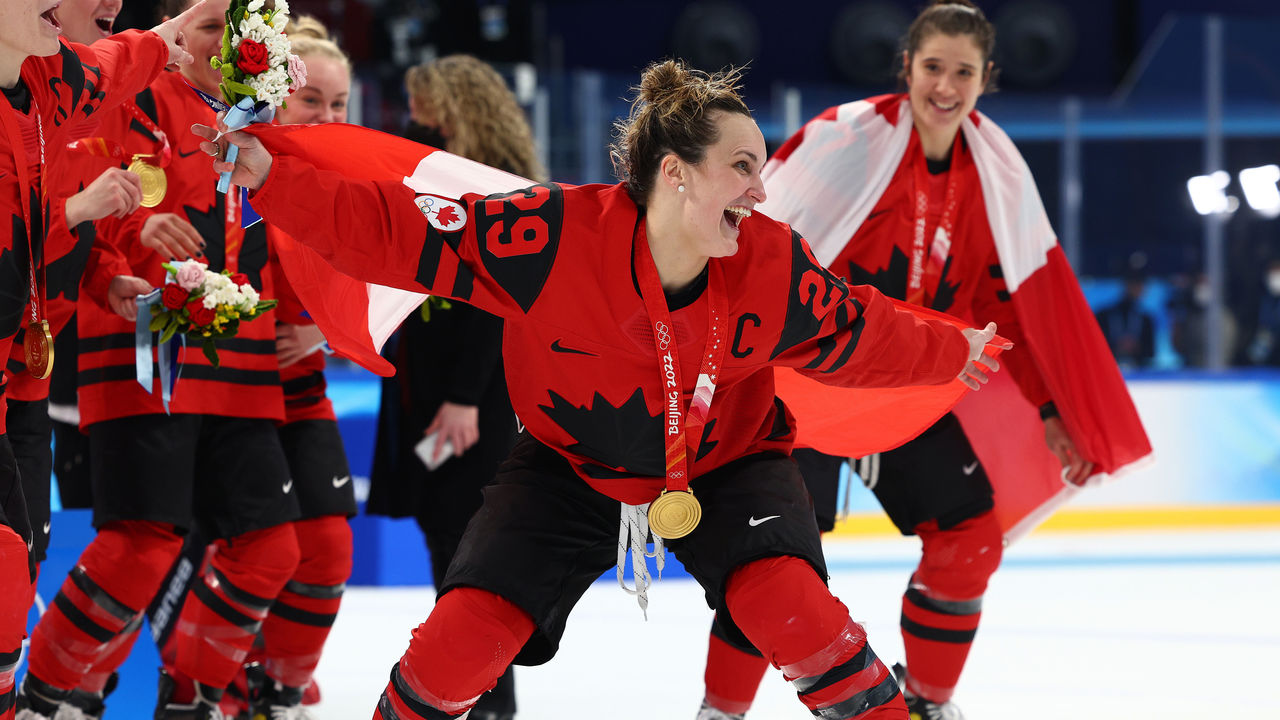
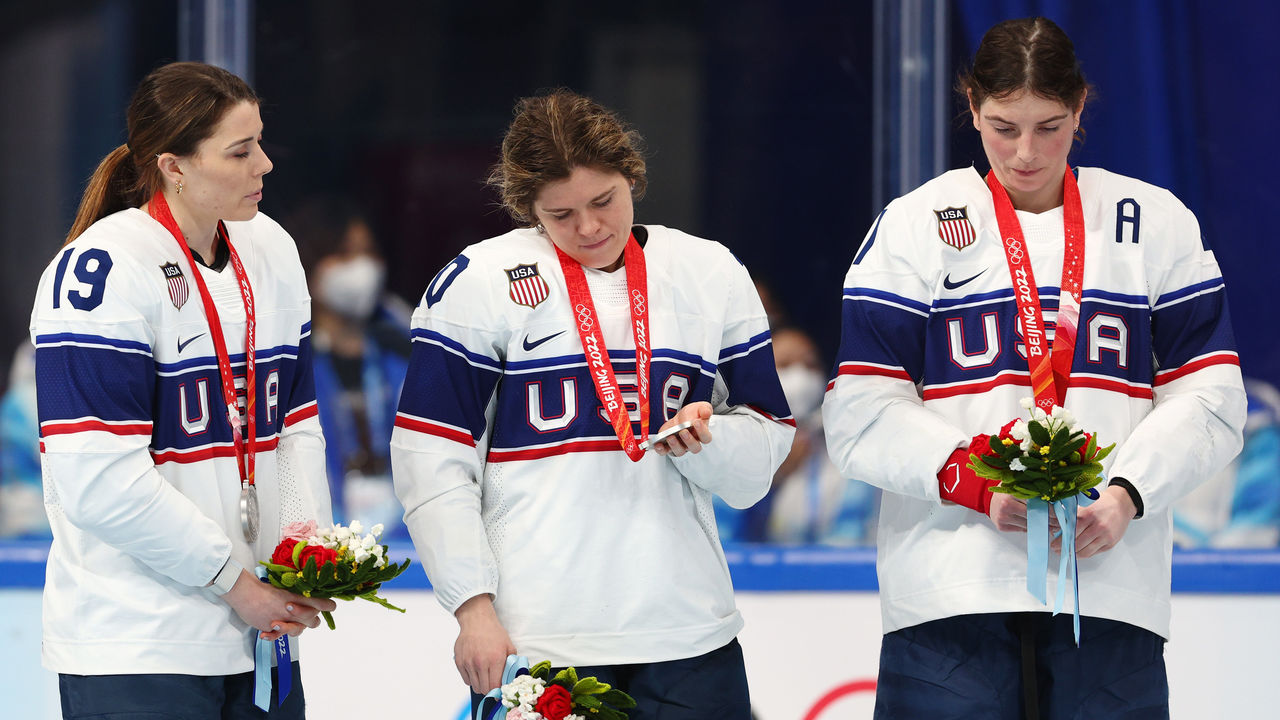
One culprit was Finland, which suffered worse defeats than expected en route to winning the bronze medal. Canada thumped the Finns 11-1 after star goalie Noora Raty was omitted from the roster, reportedly because Finland's coaches thought she shouldn't start and wouldn't be a suitable backup. That decision wrongfooted Finland, while Sweden, the Olympic silver medallist in 2006, slumped to an all-time worst eighth-place finish.
That neck of the standings produced some happier stories. China entered the Olympics ranked 20th in the world but stunned Denmark and Japan on home ice. In Czechia's Olympic debut, it beat China and Sweden and held the U.S. to four quarterfinal goals, riding Klara Peslarova and her sublime .945 save percentage. Almost every game in Group B, the tournament's second tier, was decided by one or two goals.
Dismayed by Group A's imbalance, Toronto Star columnist Rosie DiManno wrote that the Olympics should drop women's hockey. People around the sport mounted a counterargument: To make the sport more competitive, invest in it, don't kneecap it. Responding to DiManno in the Star, PWHPA consultant Jayna Hefford and women's hockey builder Allyson Fox called for more national federations to fund their teams adequately, like Canada and the U.S. do.
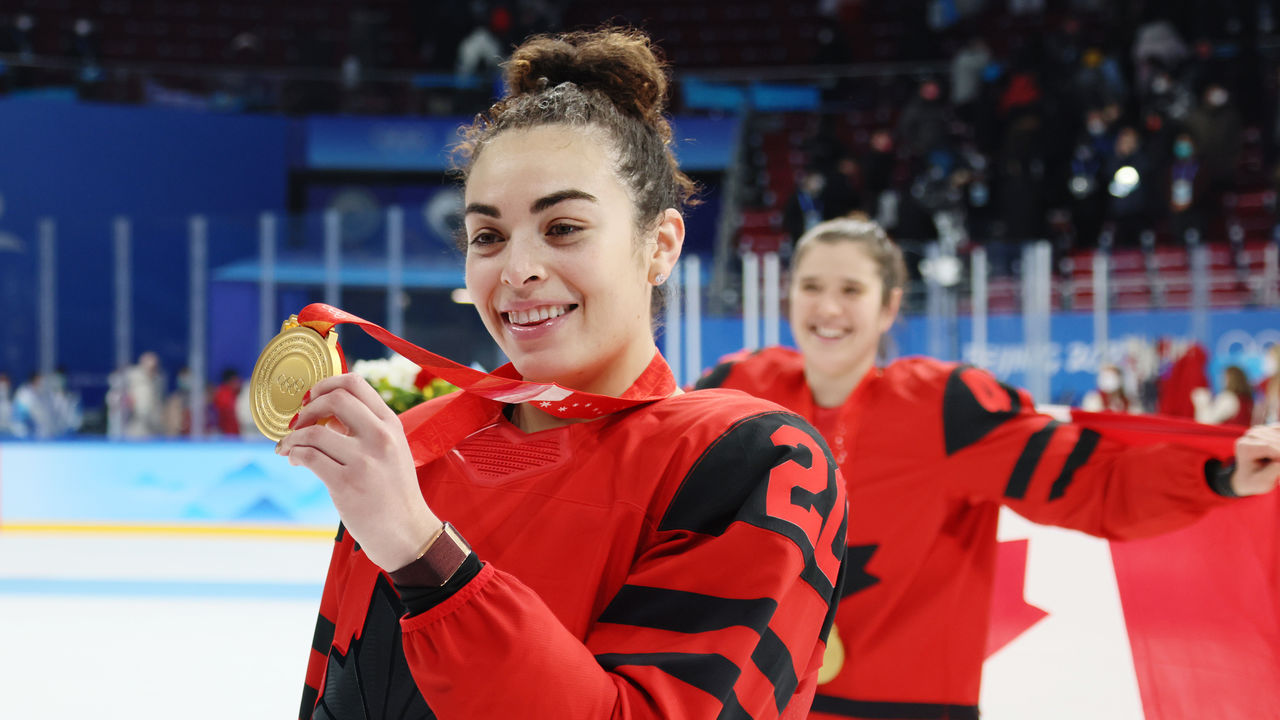
The conversation calls for historical context. The 2022 Olympics were the seventh Games to feature women's hockey. Back in 1952, the seventh Olympic men's tournament featured these lopsided scores:
Canada 15-1 Germany
Canada 13-3 Finland
Canada 11-2 Switzerland
Canada 11-2 Norway
Canada 11-0 Poland
U.S. 8-2 Germany
U.S. 8-2 Finland
U.S. 8-2 Switzerland
Sweden 17-1 Poland
Sweden 9-2 Finland
Switzerland 12-0 Finland
Czechoslovakia 11-2 Finland
Today, Finland is second in the IIHF men's rankings, Germany is fifth, Switzerland is eighth, and Norway is eleventh. They regularly beat or threaten to upset the U.S. and Canada. The Olympics didn't scrap men's hockey at a precarious point, and following decades of investment and development, the world got deeper.
Men's pro hockey is a century older than the women's pro game - plenty of time to iron out kinks. After the NHL launched in 1917, franchise instability and contraction afflicted the league for 25 years, at which point the Original Six teams remained.
Abandoned by the PWHPA players, the Premier Hockey Federation is in its seventh season, and it maintains that it's the sustainable women's league that the PWHPA desires. PHF teams play in Toronto, Minnesota, and throughout the American Northeast. The league announced plans in January to expand to Montreal and increase its salary cap to $750,000. Next month's PHF championship game will air live on ESPN2.
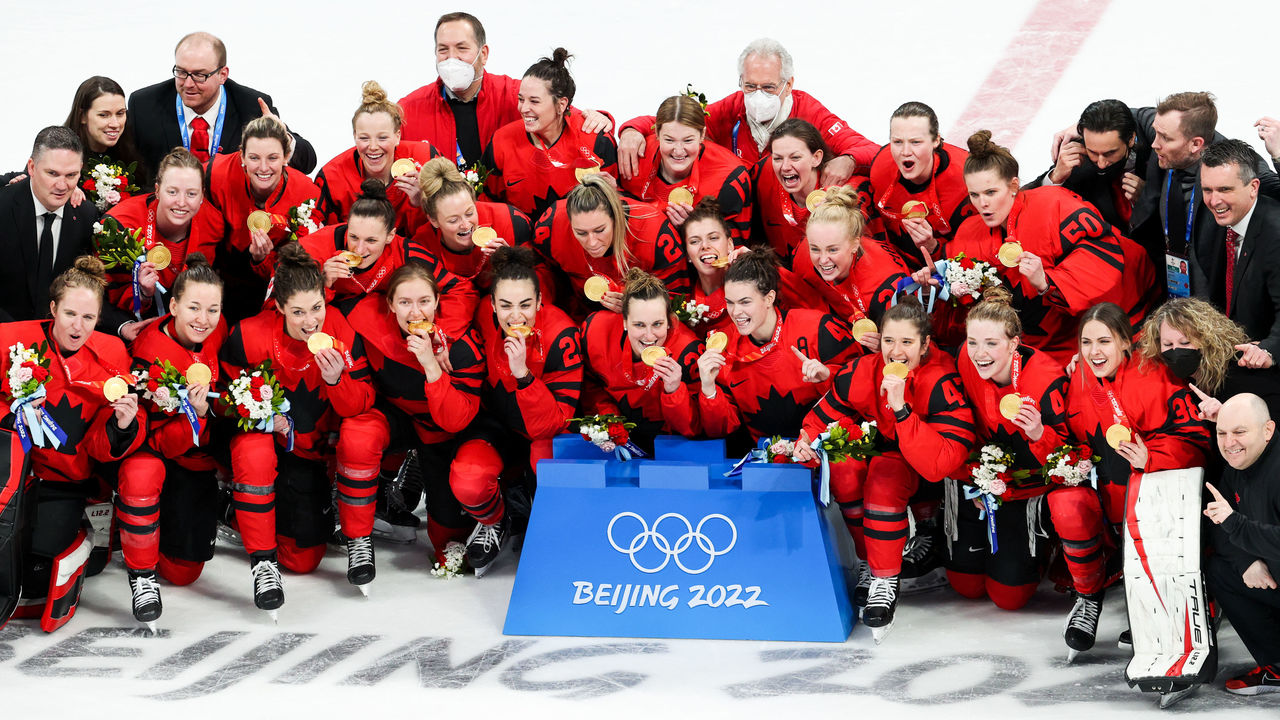
Questions about the future abound. Does women's hockey need the NHL to fund a pro league, or can the PHF keep growing incrementally? How much longer can the sport's stars sit out of league play? What opportunities are lost when they don't play many games throughout the season? Could the league that sticks around long term attract top talent from Europe and elsewhere, maximizing the level of competition?
Maybe the next quadrennial will bring clarity. This moment belongs to Canada, quite the bounce back for the program that lost to Raty's Finns in the semifinals of the 2019 worlds. Head coach Troy Ryan changed the team approach, empowering the Canadians to play loose and chase offense. The U.S. on Thursday couldn't match Canada's breakout speed, depth, or star power, especially with top center Brianna Decker out injured since the tournament opener.
If healthy, Decker would have buzzed around the Canadian zone in that frantic third period. Instead, she watched from ice level as the U.S. hit posts and flipped breakaway attempts into Desbiens' gear. Hilary Knight fired six shots at the Canadian netminder and scored shorthanded, yet fell to 1-3 in Olympic finals compared to Poulin's 3-1 record.
This one was tense until the last horn. The result will be celebrated and rued for four years.
Nick Faris is a features writer at theScore.
Copyright © 2022 Score Media Ventures Inc. All rights reserved. Certain content reproduced under license.